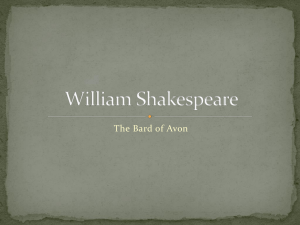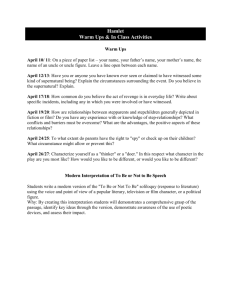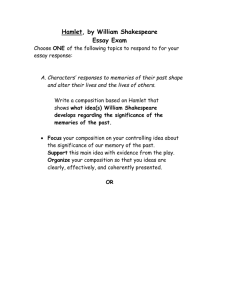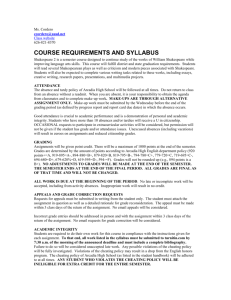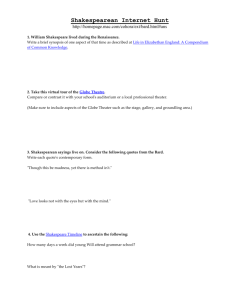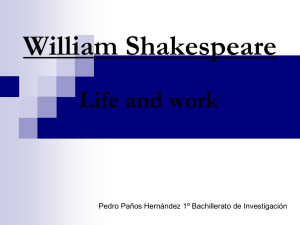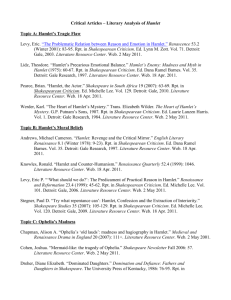Shakespeare - British Council
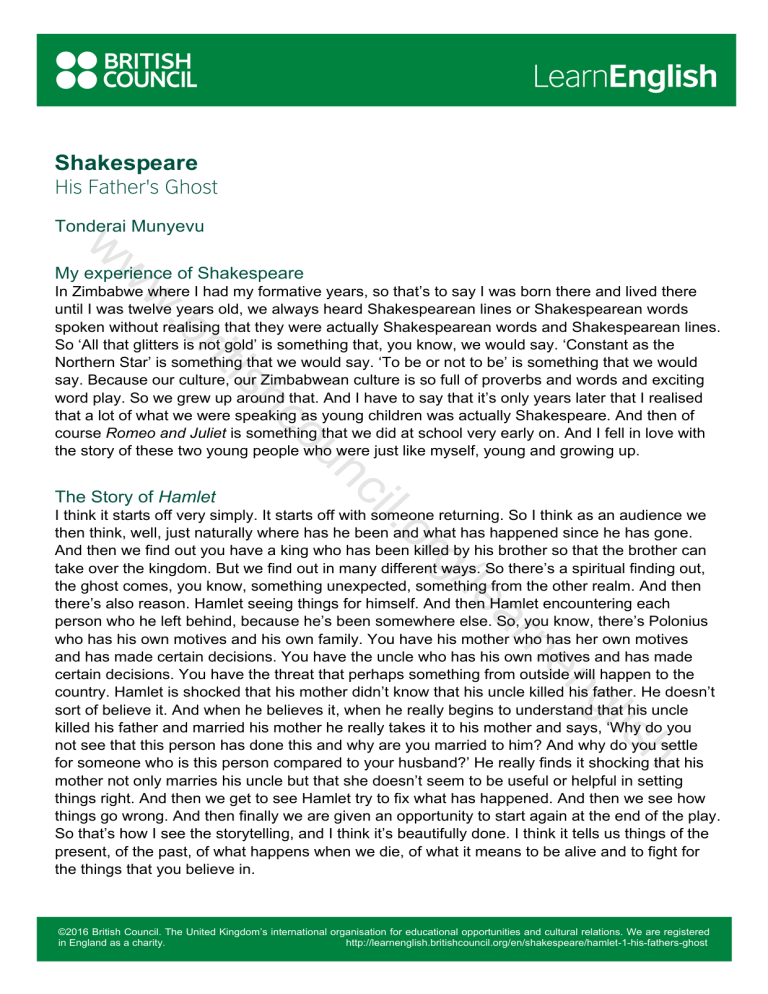
Shakespeare
His Father's Ghost
www.britishcouncil.org/learnenglish
My experience of Shakespeare
In Zimbabwe where I had my formative years, so that’s to say I was born there and lived there until I was twelve years old, we always heard Shakespearean lines or Shakespearean words spoken without realising that they were actually Shakespearean words and Shakespearean lines.
So ‘All that glitters is not gold’ is something that, you know, we would say. ‘Constant as the
Northern Star’ is something that we would say. ‘To be or not to be’ is something that we would say. Because our culture, our Zimbabwean culture is so full of proverbs and words and exciting word play. So we grew up around that. And I have to say that it’s only years later that I realised that a lot of what we were speaking as young children was actually Shakespeare. And then of course Romeo and Juliet is something that we did at school very early on. And I fell in love with the story of these two young people who were just like myself, young and growing up.
The Story of Hamlet
I think it starts off very simply. It starts off with someone returning. So I think as an audience we then think, well, just naturally where has he been and what has happened since he has gone.
And then we find out you have a king who has been killed by his brother so that the brother can take over the kingdom. But we find out in many different ways. So there’s a spiritual finding out, the ghost comes, you know, something unexpected, something from the other realm. And then there’s also reason. Hamlet seeing things for himself. And then Hamlet encountering each person who he left behind, because he’s been somewhere else. So, you know, there’s Polonius who has his own motives and his own family. You have his mother who has her own motives and has made certain decisions. You have the uncle who has his own motives and has made certain decisions. You have the threat that perhaps something from outside will happen to the country. Hamlet is shocked that his mother didn’t know that his uncle killed his father. He doesn’t sort of believe it. And when he believes it, when he really begins to understand that his uncle killed his father and married his mother he really takes it to his mother and says, ‘Why do you not see that this person has done this and why are you married to him? And why do you settle for someone who is this person compared to your husband?’ He really finds it shocking that his mother not only marries his uncle but that she doesn’t seem to be useful or helpful in setting things right. And then we get to see Hamlet try to fix what has happened. And then we see how things go wrong. And then finally we are given an opportunity to start again at the end of the play.
So that’s how I see the storytelling, and I think it’s beautifully done. I think it tells us things of the present, of the past, of what happens when we die, of what it means to be alive and to fight for the things that you believe in.
©2016 British Council. The United Kingdom’s international organisation for educational opportunities and cultural relations. We are registered in England as a charity. http://learnenglish.britishcouncil.org/en/shakespeare/hamlet-1-his-fathers-ghost

